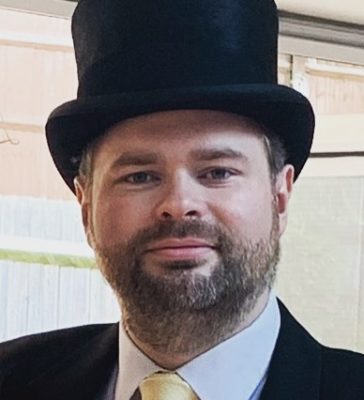
Richard Sampson
Current Employer/Organisation Name
HMCTS
What have you been doing since leaving Exeter, and what are you doing now?
On leaving Exeter I worked in a small solicitors’ firm in rural Shropshire before going on to Bar School in London. I then worked as a Judge’s Clerk at the Royal Courts of Justice for a little over a year then gained a post as a Trainee Legal Adviser with Her Majesty’s Courts Service. Two years in Croydon learning the law and procedure in the magistrates’ courts stood me in excellent stead when I obtained pupillage at a small Chambers in London. I took tenancy after my pupillage and practised at the criminal bar in London and the South East for four years, mainly prosecuting but also defending and doing some consultancy work with the Treasury Solicitors. I left Chambers to try to get a more secure income and spent a short time in legal compliance with an asset management firm in the City. This was not to my taste and I was missing crime, I went solo for a short period as disclosure counsel to the Serious Fraud Office before accepting a full time post there. Since 2018 I have returned to the Courts Service as a Legal Adviser and am now half way through a year’s detachment as the Legal Adviser and Researcher to the Senior District Judge.
Why did you choose this career? And what do you enjoy most about your work?
I had wanted to practice in criminal law since my teenage years when I completed a number of mini-pupillages with a criminal barrister. I enjoy the problem-solving aspect and the technical knowledge required to shepherd cases through the magistrates’ court jurisdiction. The magistracy are a diverse group of people who all volunteer their time to do a difficult job and it is my privilege to help and advise them. The magistrates’ courts complete some 90% of all criminal cases in England and Wales so there is rarely a boring day.
Please tell us if you were a member of any societies, groups or sports clubs?
While at Exeter I was President of the Debating Society, member of the Bracton Law Society (before it was a hotbed of unpleasant racism!) where I took part in the Western Circuit Mooting Competition.
What did you enjoy most about your programme and what was the biggest highlight?
Having some really excellent lecturers and tutors was good inspiration and made for healthy debates and interesting discussions. The biggest highlight was actually the flexibility of the course to let us take a non-Law module, in conjunction with the Chemistry department we were provided with a Forensic Science module in my third year which was truly excellent and covered some practical points which I still use in my career today.
What skills and experiences have been most useful for your career?
The time management I learnt as a student along with the self-reliance of being away at university are under-rated skills in the modern workplace. I also had a part time job in a call centre which taught me a lot about building rapport with complete strangers and effective advocacy techniques.
What advice would you give to a current student who wishes to pursue your career?
Be brutally realistic with yourself, there are so few pupillages nowadays and the marketplace is saturated. Why do you want the job? Why are you good enough? If you cannot answer those questions convincingly to yourself it will be a matter of luck if you get through. Also, financially it is a never-ending struggle for at least the first ten years, can you cope mentally and financially? Are you prepared to put in the work to get a scholarship etc.
What are your plans for the future?
I am hoping to get to a position where I can apply for a judicial post.

